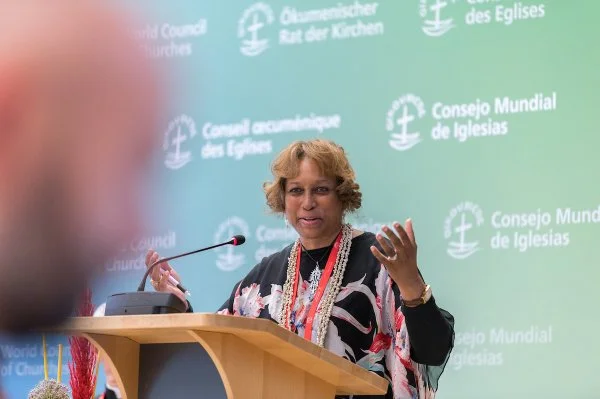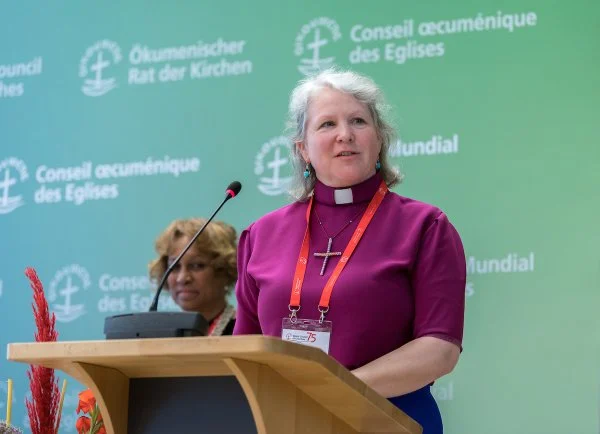- Français
- |
- Booklist
- |
- Week of Prayer
- |
- Links
- Areopagus - a forum for dialogue
- Academic journals
- Acronyms
- Bible tools
- Bibliographies
- Booksellers and publishers
- Churches
- Canadian church headquarters
- Directory of Saskatchewan churches
- Retreat centres
- Saskatchewan church and non-profit agencies
- Ecumenism.net Denominational links
- Anabaptist & Mennonite
- Anglican
- Baptist
- Evangelical
- Independent episcopal
- Lutheran
- Methodist, Wesleyan, and Holiness
- Miscellaneous
- Mormon
- Orthodox (Eastern & Oriental)
- Para-church ministries
- Pentecostal / charismatic
- Presbyterian & Reformed
- Quaker (Society of Friends)
- Roman & Eastern Catholic
- United and uniting
- Documents of Ecumenical Interest
- Ecumenical agencies
- Ecumenical Booklist
- Ecumenical Dialogues
- Glossary
- Human rights
- Inter-religious links
- Justice & peace
- Lectionaries
- Religious news services
- Resource pages
- Search Ecumenism.Net
- |
- Documents
- Ancient & Medieval texts
- Ecumenical Dialogues
- Interreligious
- Anabaptist & Mennonite
- Anglican
- Evangelical
- Lutheran
- Orthodox
- Reformed & Presbyterian
- Roman & Eastern Catholic
- United & Uniting
- Miscellaneous churches
- Canadian Council of Churches (CCC)
- Conference of European Churches (CEC)
- Interchurch Families International Network (IFIN)
- National Council of Churches in Australia (NCCA)
- Lausanne Committee for World Evangelism (LCWE)
- World Council of Churches (WCC)
- Other ecumenical documents
Church traditions
Documents from ecumenical agencies
- |
- Dialogues
- Adventist-Reformed
- African Instituted Churches-Reformed
- Anglican-Lutheran
- Anglican-Orthodox
- Anglican-Reformed
- Anglican-Roman Catholic
- Anglican-United/Uniting
- Baptist-Reformed
- Disciples of Christ-Reformed
- Disciples of Christ-Roman Catholic
- Evangelical-Roman Catholic
- Lutheran-Mennonite
- Lutheran-Mennonite-Roman Catholic
- Lutheran-Reformed
- Lutheran-Roman Catholic
- Mennonite-Reformed
- Mennonite-Roman Catholic
- Methodist-Reformed
- Methodist-Roman Catholic
- Oriental Orthodox-Reformed
- Orthodox-Reformed
- Orthodox-Roman Catholic
- Pentecostal-Reformed
- Prague Consultations
- REC-WARC Consultations
- Roman Catholic-Lutheran-Reformed
- Roman Catholic-Reformed
- Roman Catholic-United Church of Canada
- |
- Quick links
- Canadian Centre for Ecumenism
- Canadian Council of Churches
- Ecumenical Shared Ministries
- Ecumenism in Canada
- Interchurch Families International Network
- International Anglican-Roman Catholic Commission for Unity and Mission
- Kairos: Canadian Ecumenical Justice Initiatives
- North American Academy of Ecumenists
- Prairie Centre for Ecumenism
- Réseau œcuménique justice et paix
- Week of Prayer for Christian Unity
- Women's Interchurch Council of Canada
- World Council of Churches
- |
- Archives
- |
- About us
North American region of WCC challenges regional racism
— July 6, 20236 juil. 2023Racism has been identified as one of the most significant challenges facing the North American region in the United States and Canada, a World Council of Churches (WCC) meeting has heard.
Members of the North American region of the WCC’s Central Committee, its highest governing body between Assemblies, met during its 21-27 June meeting in Geneva.
“North America or Turtle Island, which is the Indigenous name for North America, is one of three continents that make up ‘The New World.’ The continent was new to 15th-century European explorers but old to the Indigenous peoples already living there,” said Rev. Dr Angelique Walker-Smith, WCC president from North America.
“Indeed, North America Turtle Island had been populated for at least 15,000 years before Europe colonized Turtle Island and named it after an Italian explorer Americus Vespucci.”
1,000 languages
She said before “the Age of Discovery,” before explorers like Vespucci and Christopher Columbus, there were at least 1000 different languages among the Indigenous population of Turtle Island.
“During the decline, and systematic assault of the Indigenous population, many of these languages went extinct, and sadly, relatively few now survive,” said Walker-Smith. “But even today, hundreds of languages are still spoken in North America Turtle Island — primarily due to immigrant populations and communities.”
In September 2022, the North American delegation to the Karlsruhe Assembly identified four themes of concern in the region. During the recent Central Committee meeting, the North American delegation met to reaffirm these themes for the period leading to the next WCC Assembly. The themes are: (1) Racism/white supremacy/white Christian nationalism; (2) the historic and present wealth and income gap-poverty and an intersectional issue of hunger; (3) climate change/climate justice; and (4) solidarity with Indigenous peoples.
Walker-Smith said the WCC’s North America region is looking forward to the visit of the WCC’s general secretary, Prof. Dr Jerry Pillay, after mid-July this year “with member churches and at the United Nations, which happens to be in North America Turtle Island.”
Rev. Jennifer Leath, a member of the WCC’s Joint Consultative Group with the Pentecostals and ECHOS, the WCC Commission of Youth and a member of the African Methodist Episcopal Church in the USA, spoke about racism and white supremacy.
“A pretence on which European settlers colonized Turtle Island was religious freedom. The freedom of those colonizers came at high costs,” she said at the meeting.
“Over 12 million of the Indigenous people were massacred and their land stolen. Among the burgeoning colonizing communities, the obsessive and overwhelming pursuit of capitalist enterprise dwarfs all pretence of religious freedom narratives.”
Leath noted the transatlantic slave trade, under which 10 million Africans were enslaved, was “justified by an anti-Black, white supremacist, biblical hermeneutic.”
“This history haunts our home and its inhabitants. For this reason, it is no surprise that racism was identified as the greatest challenge facing our region,” said Leath.
“Racism is most painfully reflected in the anti-Black culture of the United States and the anti-Indigenous culture of Canada,” she said.
She asked, “How can we be the church?” as American Christians “wrestle with the dissonance of a maturing Christian militaristic nationalism that polarizes us and stands out hopes for a truer democracy.
“We as a region are the tragically paralyzed on and beneath the cross of Calvary.”

 Permanent link: ecumenism.net/?p=13909
Permanent link: ecumenism.net/?p=13909
Categories: WCC News • In this article: Indigenous peoples, racism, WCC Central Committee

 Lien permanente : ecumenism.net/?p=13909
Lien permanente : ecumenism.net/?p=13909
Catégorie : WCC News • Dans cet article : Indigenous peoples, racism, WCC Central Committee








